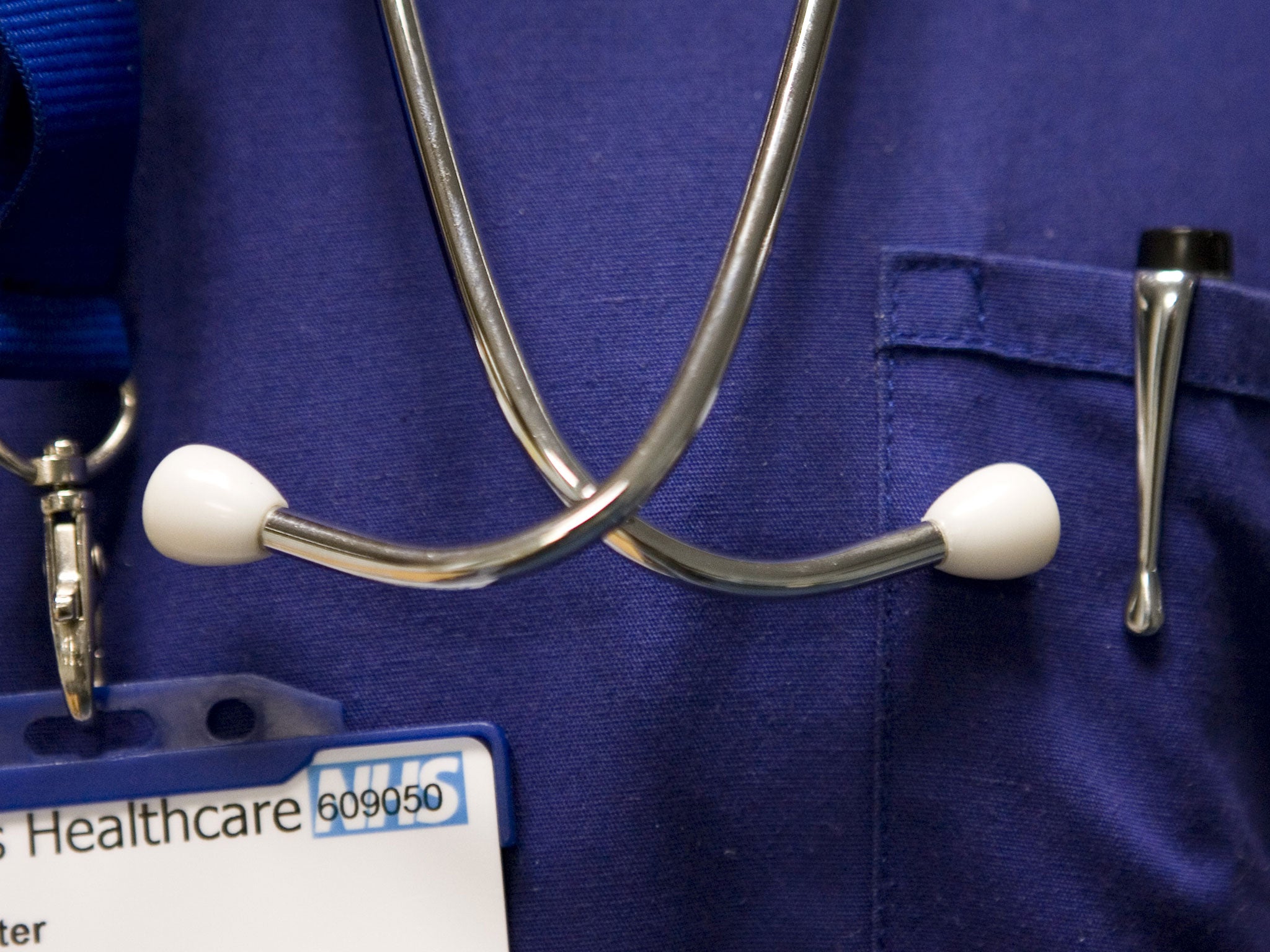If I’ve got dementia, I’d expect my GP to identify it without being paid extra
Most worrying of all, this cash-for-diagnosis plan turns patients into commodities


Since turning 40 nearly a year ago, I have become the subject of increasing concern on the part of the NHS. The letters from my local clinical commissioning group reminding me that I am overdue my Health MOT – checks for high blood pressure, cholesterol and diabetes – are piling up. This is not because I refuse to acknowledge my age (okay maybe it is, just a little bit), but I just haven’t got round to fixing the appointment. Is the NHS being so persistent because it’s concerned about my health? Or is it that they get paid more if they diagnose my high blood pressure?
Health MOTs at 40, first introduced under the last Labour government, are a good idea, as are other early intervention diagnosis schemes. If the NHS can identify something like early-stage diabetes in a patient, then money can be saved further down the line: as such, doctors have targets for early diagnoses of these conditions, and for more serious, life-threatening illnesses like lung cancer, emphysema and dementia. But have the strenuous efforts to meet these targets gone too far?
NHS England, it has emerged, is to pay surgeries £55 for every patient they diagnose with dementia. This is a direct response to David Cameron’s ambitious target, set last year, for two thirds of people with dementia to be identified and given support by 2015. With around half of the estimated 850,000 people with dementia in England undiagnosed, and the 2015 deadline looming, it’s no wonder the NHS has decided to throw some money at the problem – that target clearly isn’t going to be met.
It is true that dementia is one of the most urgent issues facing our society – it’s a condition that is spiralling out of control thanks to people living ever longer. It is also true that the NHS, struggling under the “flat-real” budget (ie the Prime Minister may claim that he’s protecting the NHS budget, but in real terms it’s not rising at all), needs money targeted at the most serious problems. But paying money to GPs, already handsomely remunerated, for doing a job they’re already paid for? Forgive me if it makes my blood pressure rise a little.
Why do GPs need incentives to do their job properly? Surely the best family doctors will already be adept at spotting dementia in patients, which means this money will be rewarding those who aren’t good enough at their job. GPs will have to identify patients most likely to be at risk – the over-60s who smoke, drink or eat too much – and follow up the consultation with memory tests. How hard can this be for any doctor? Do they really need £55-a-head to carry out this simple routine? The total amount of money involved is tiny – around £5m – compared to the entire NHS budget. But spending this money cannot be the best use of NHS resources when the budget is not increasing in real terms.
Would the scheme encourage GPs to err on the side of caution and falsely diagnose dementia? And what happens once those patients are diagnosed? The Prime Minister’s dementia target includes not just identifying the disease but giving patients appropriate support. Yet the British Medical Association says there aren’t sufficient resources to treat patients after diagnosis. Targets are meaningless if patients continue to suffer.
Most worrying of all, this cash-for-diagnosis plan, to be launched next March, turns patients into commodities. Iona Heath, the former president of the Royal College of GPs, calls the move an “ethical travesty”. Katherine Murphy of the Patients Association says the policy will put a “bounty on the head of certain patients”.
That intimate interaction between patient and doctor, in the confines of the consulting room, becomes monetised. It is arguable that we are there already, given that GPs have to meet targets on diagnosing manageable conditions like high cholesterol and diabetes. No wonder those letters about my Health MOT are piling up. One family doctor I know, whose practice is in an affluent area, says he is penalised financially for not meeting targets on diagnosing lung cancer – even though the socio-economic status of his patients makes it, happily, less likely that they will suffer from this disease and thus, for him, this target is never met.
The proportion of patients diagnosed with dementia has not risen since the Prime Minister set his diagnosis target more than a year ago, but the number of suspected cases overall has rocketed in that time, from 670,000 to 850,000. By 2025, around one million of us will have it. It would be better if Cameron would honestly say his target is not achievable in such a short space of time. No one would doubt his commitment to tackling this disease.
Join our commenting forum
Join thought-provoking conversations, follow other Independent readers and see their replies
Comments
Bookmark popover
Removed from bookmarks